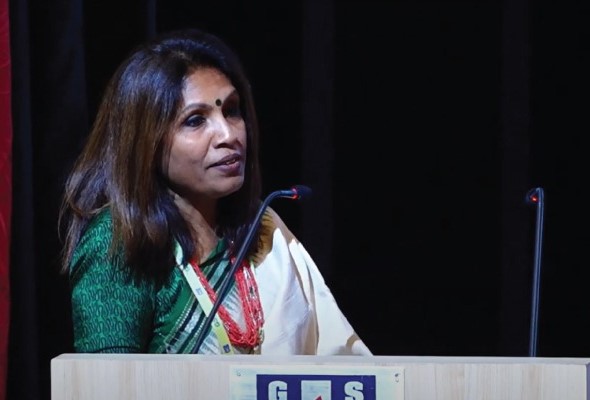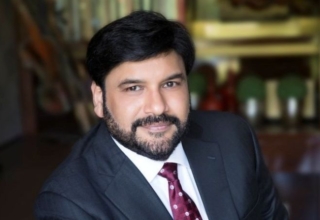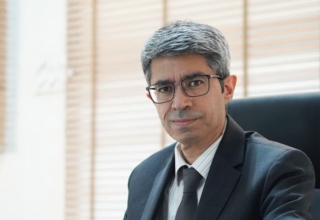
Liberal Arts education is no longer believed to raise students who are “Jacks of all trades, masters of none.” Instead, it is understood as a comprehensive approach to learning that prepares students for a wide array of challenges and opportunities. This education fosters versatile skills, such as effective communication, analytical thinking, and problem-solving, which are essential in today’s dynamic and interconnected world. Once considered the domain of average or C-grade scorers, Liberal Arts is now a top choice for bright students. This change reflects a deeper understanding of how these domains equip individuals with a diverse skill set, critical thinking abilities, and a broad perspective that are invaluable across various professional and personal contexts says Prof. Radhika Lobo, an alumnus of Nagpur University and currently Professor and Program Chair Liberal Arts, Vidyashilp University, Bengaluru in an email interview to Autar Nehru
Liberal Arts Education or humanities is receiving a lot of attention. What does this popularity trend tell us?
Ans: Drawing on my decades of experience, I can confidently say that the growing interest in Liberal Arts and humanities is a highly positive trend. Students and their parents are increasingly recognizing the profound importance of a Liberal Arts education. As the program chair, I have witnessed firsthand how this education cultivates well-rounded, innovative thinkers capable of tackling complex problems. The curriculum’s emphasis on interdisciplinary learning and critical inquiry help students develop the adaptability needed to thrive in various careers and life situations. It is heartening to observe that more students are choosing this path, appreciating its potential to contribute to their personal growth and societal betterment. Also, the attraction of more and more meritorious students to Liberal Arts education is a positive and necessary trend. This shift in attitude underscores the timeless value of a Liberal Arts education in nurturing thoughtful, capable, and responsible global citizens. It prepares individuals not only for specific careers but also for lifelong learning and adaptation.
There is a feeling that a shift to humanities is also as a means of escapism from the excessive study pressure and stress of STEM test preps and fear of failures to get into good college. Your comment.
Ans: Yes, there is a common belief that students are shifting to humanities to escape the stress associated with STEM courses. If anyone thinks that shifting to humanities is the easy way out, they should think again. The humanities demand a high level of intellectual effort and engagement. The skills cultivated through this discipline—such as analytical reasoning, effective communication, and ethical reflection—are essential for navigating the complexities of our world. Therefore, the shift to humanities is not about avoiding the difficulties of STEM education but about embracing a different set of challenges that are equally demanding and rewarding. It reflects a growing recognition of the value of a well-rounded education that prepares students for diverse paths and equips them with the tools to think critically and creatively about the world around them. My conversations with students at Vidyashilp University reveal that the assignments in our humanities programs are intellectually challenging and require a significant amount of critical thinking. These are not tasks that can be completed mechanically or without deep engagement. So, I am saying the popularity is organic and coming from conversations going on in the student communities.
Now coming to the all-important question of career options for Liberal Arts Education, where dos it fit in the new age of possibilities and emerging technologies?
Ans: I can confidently say that a liberal arts education prepares students for a wide range of career opportunities in the new age of possibilities and emerging technologies. Here are a few key reasons why:
- A liberal arts education instils in students the ability to adapt to change, think critically, and continuously learn new skills. In a rapidly evolving job market driven by technological advancements, this adaptability is crucial. Liberal arts graduates are well-equipped to pivot between careers and thrive in a variety of roles as new industries and job functions emerge.
- By studying a diverse range of subjects, liberal arts students develop the ability to approach problems from multiple angles and synthesise knowledge from different domains. This interdisciplinary mindset is invaluable in fields such as technology, where complex challenges often require creative solutions that bridge disciplines. Liberal arts graduates can excel in roles that demand out-of-the-box thinking and the ability to connect the dots.
- Strong communication and teamwork skills are essential in today’s collaborative work environments. Through courses in writing, public speaking, and group projects, liberal arts students hone these abilities. They can effectively articulate ideas, listen to diverse perspectives, and work productively with colleagues from various backgrounds. These soft skills are in high demand across industries and enable liberal arts graduates to thrive in team-based roles.
- While a liberal arts education provides breadth, it also allows students to dive deep into specific areas of interest through minors. At Vidyashilp University, we offer programs in domains like economics, psychology, design, legal studies, business management and data science that equip students with rigorous, specialised knowledge. This combination of depth and breadth prepares graduates for success in their chosen domains and the flexibility to explore new directions. In summary, a liberal arts education provides students with the adaptability, problem-solving skills, communication abilities, and specialised knowledge needed to navigate the new age of possibilities and emerging technologies. I can say our own graduates are well-positioned to succeed in a wide range of careers and to make meaningful contributions to the rapidly evolving world.
Internships, projects or what you call immersive learning and research are new buzz words about higher education. How do you integrate these into liberal arts education, which is traditionally seen as bookish and theoritical?
Ans: Internships, projects, and immersive learning are indeed the new buzzwords in education, and at Vidyashilp University, we have seamlessly integrated these into our liberal arts curriculum, as you rightly said traditionally perceived as focused on books and theories. Our approach ensures that students not only engage with theoretical knowledge but also apply it in real-world contexts. All our students secure internships in diverse areas, showcasing the practical applicability of their education. For instance, some students evaluate how peers from foundational courses integrate into mainstream education, while others assess public policies at the state government level. Additionally, students work on researching and raising awareness about neurodivergence or participate in research projects led by our faculty. These opportunities typically begin after their second year, allowing them to gain hands-on experience early in their academic journey. These internships and projects provide liberal arts students with a wealth of opportunities to apply their theoretical learning in practical settings. This blend of theory and practice not only enriches their education but also equips them with the skills and experiences necessary for their future careers. I can tell about Vidyashilp University, we are committed to ensuring that our liberal arts students are well-prepared for the complex interdisciplinary challenges of the modern world.
Give us an overview of your own university’s Liberal Arts Education snapshot for the prospective students and their parents?
Ans: Vidyashilp University’s liberal arts programs offer a unique and compelling proposition for prospective students. Our liberal arts programs are designed to be research-intensive, providing students with the opportunity to pursue a Ph.D. right after their undergraduate studies. This seamless transition from a bachelor’s to a doctoral program allows our students to delve deeper into their domains of interest and contribute to cutting-edge research at an early stage in their academic careers. Our students have access to a range of immersive learning opportunities, such as the Ethnography Lab and the Center for Writing. These initiatives enable them to apply their theoretical knowledge to real-world scenarios, develop practical skills, and engage in interdisciplinary collaboration.
Our admissions process goes beyond just academic credentials. While we do consider the applicant’s performance in their 12th-grade board exams, we also place a strong emphasis on the personal interview. This allows us to assess the candidate’s fit with our cohort and ensure that they possess the necessary qualities, such as curiosity, creativity, and a passion for interdisciplinary learning. The eligibility criteria for our liberal arts programs vary based on the chosen board for the 12th-grade. We welcome applications from students who have excelled in a diverse range of academic backgrounds, including humanities, sciences, and commerce. Our liberal arts programs are competitively priced, making them accessible to students from various socioeconomic backgrounds. We also offer a range of scholarships and financial aid options to support our outstation students and ensure that cost is not a barrier to accessing our progressive education
Finally, there is a push for liberal arts education component even for engineering and other technical students, then NEP has brought the concept of multidisciplinary education as well. Taking advantage of your expertise, can you list a few popular minor courses that you can recommend for such students.
Ans: As the program chair of liberal arts at Vidyashilp University, I can confidently recommend several popular minor courses that would greatly benefit technical students:
- An understanding of economics is essential for any engineer or technical professional. By taking courses in microeconomics, macroeconomics, and behavioural economics, students will gain valuable insights into how markets function, the factors that drive supply and demand, and individual responses in economic settings. This knowledge will help them make more informed decisions, understand the broader economic context of their work, and potentially identify new business opportunities.
- Psychology is another highly relevant minor for technical students. Courses in areas like organisational psychology, human factors, and cognitive psychology can teach students how to better understand and interact with end-users, work effectively in teams, and design products and systems that are intuitive and user-friendly. This interdisciplinary knowledge is crucial for creating technologies that truly meet people’s needs. I feel by incorporating these types of liberal arts minors into their technical education, students will gain a more well-rounded perspective and the interdisciplinary skills needed to thrive in today’s rapidly evolving, technology-driven world. This approach aligns perfectly with the vision of the National Education Policy to promote multidisciplinary learning and prepare students for the challenges of the 21st century.











